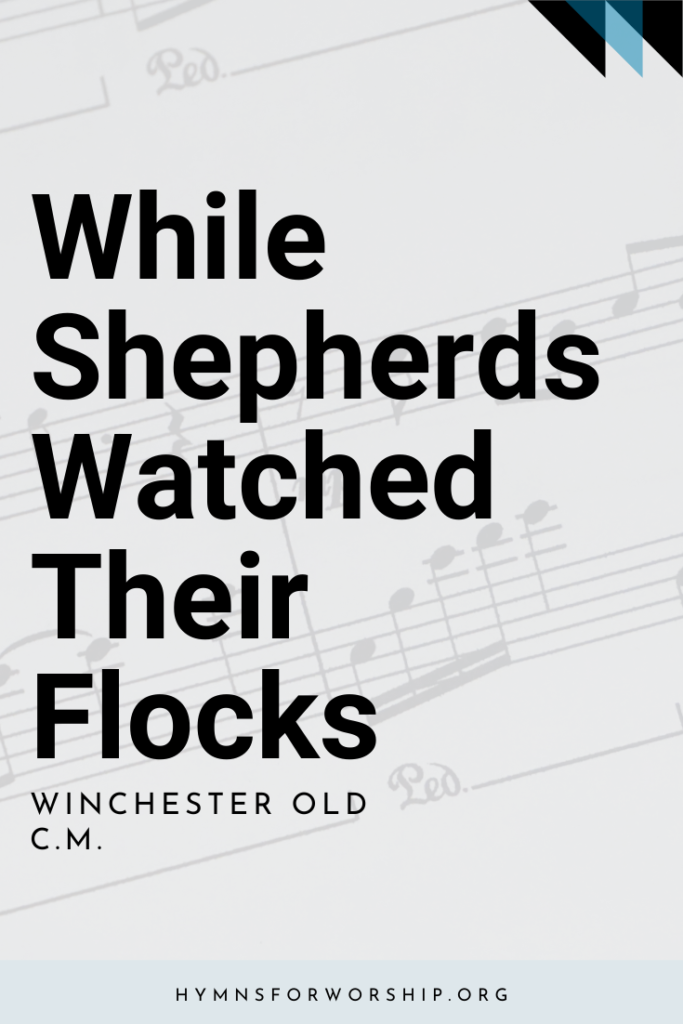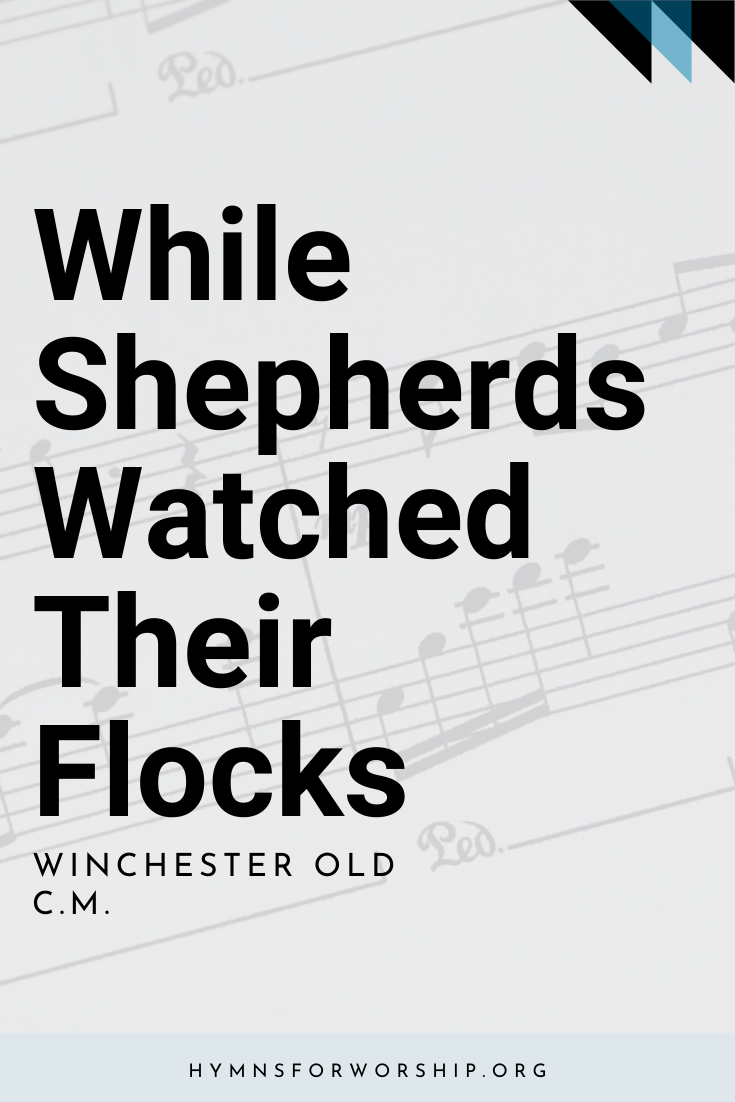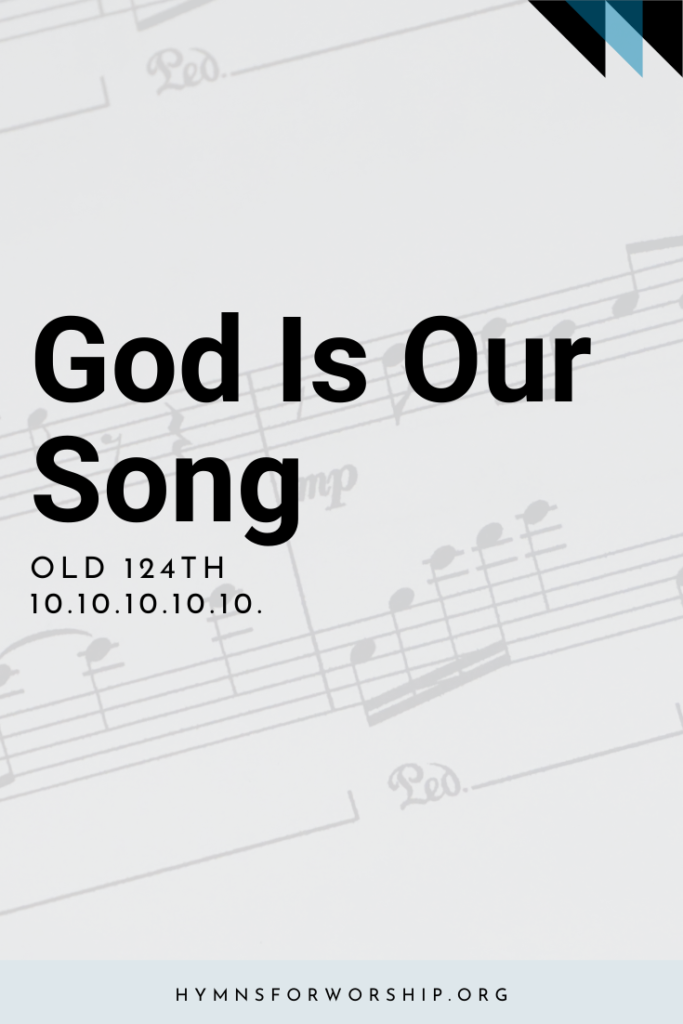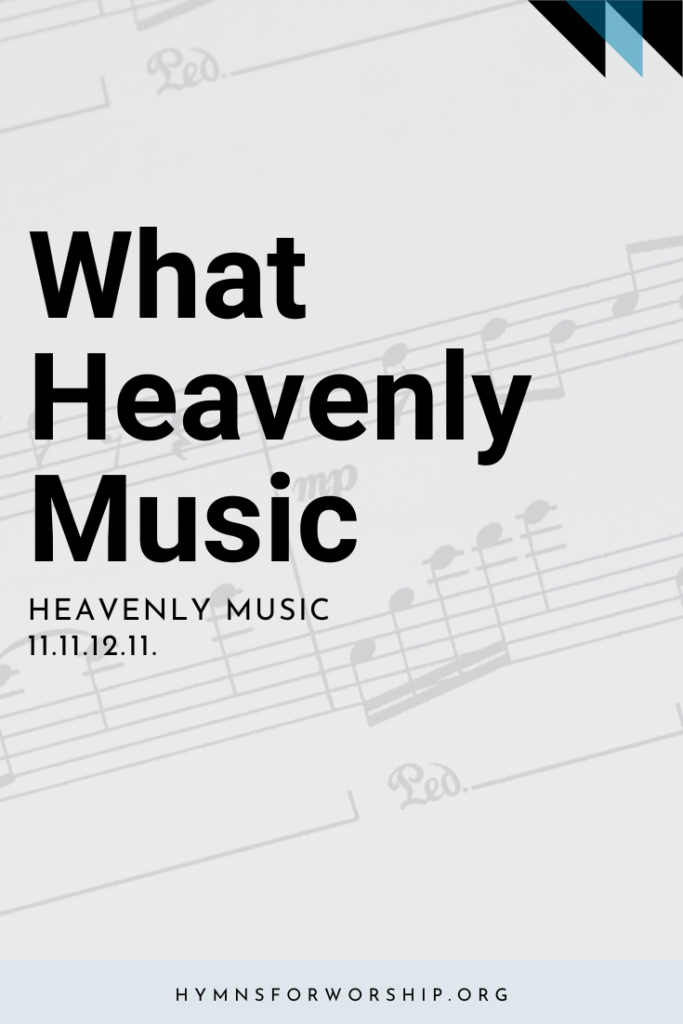JESUS CHRIST >> BIRTH
SDAH 139
While shepherds watched their flocks by night,
All seated on the ground,
The angel of the Lord came down,
And glory shone around.


Text
1
While shepherds watched their flocks by night,
All seated on the ground,
The angel of the Lord came down,
And glory shone around.
2
“Fear nor!” said he- for mighty dread
Had seized their troubled mind-
“Glad tidings of great joy I bring,
To you and all mankind.
3
“To you, in David’s town this day,
Is born of David’s line,
The Savior who is Christ the Lord;
And this shall be the sign:
4
“The heavenly Babe you there shall find
To human view displayed,
All meanly wrapped in swathing bands,
And in a manger laid.”
5
Thus spake the seraph; and forth with
Appeared a shining throng
Of angels praising God on high,
Who thus addressed their song:
6
“All glory be to God on high,
And to the earth be peace;
Good will henceforth from heaven to men,
Begin and never cease!”

Hymn Info
Biblical Reference
Luke 2:8-14
Author
Nahum Tate (1652-1715)
Year Published
1700
Hymn Tune
WINCHESTER OLD
Metrical Number
C.M.
Tune Source
Este’s Psalter, 1592
Theme
BIRTH OF JESUS CHRIST
Hymn Score
Piano Accompaniment
Notes
Get to know the hymns a little deeper with the SDA Hymnal Companion. Use our song leader’s notes to engage your congregation in singing with understanding. Even better, involve kids in learning this hymn with our homeschooling materials.
This hymn about the birth of Jesus in Bethlehem was written in 1700 by Nahum Tate, who was then poet laureate of Britain. It is a metrical version of Luke 2:8-14, using as much as possible of the actual words of the Authorized Version. (For an example of metrical conversion, see SDAH 16.)
Nahum Tate (originally Teate) was born in Dublin in 1652, the son of an Irish minister. He was educated at Trinity College, Dublin, and settled in London in 1672, where he wrote plays for the London stage, most of them being translations or adaptations of the work of other writers. He was appointed poet laureate in 1692 by King William III. His main claim to fame comes from his work with Nicholas Brady on the Tate and Brady Psalter, 1696, also known as the New Version of the Psalms of David. (The Old Version, by Sternhold and Hopkins, 1562, had maintained a monopoly on psalm singing for about 150 years!) These new metrical versions of the psalms seemed to move in the direction of more freedom of “human composure.”
Included in the supplement authorized by the queen in 1703 were paraphrases of the Lord’s Prayer, the Ten Commandments, the Apostles’ Creed, Canticles (or songs), this hymn from the book of Luke, and five more based on the New Testament. These were all departures from a centuries-held policy that only the psalms were worthy to be sung in church. As an example of the prejudice against this New Version, Tate himself told how, when he was at family prayers in the home of a friend, one of the young girls explained her refusal to sing by saying, “If you must know the plain truth, sir, as long as you sung Jesus Christ’s psalms, I sung along with ye; but now that you sing psalms of your own invention, ye may sing by yourselves!” But once this Net Version gained a foothold, it served the church for 200 years. Tate was an intemperate man, and wound up in a debtor’s refuge in London, where he died on August 12, 1715.
Nicholas Brady was also an Irishman, born October 18, 1659, at Bandon, County Cork. He was educated at Oxford and Dublin universities. Ordained in 1688, he worked as a pastor in several churches in Ireland and England, and was chaplain to William III, to Mary, and to Anne, both as princess of Wales and as queen. He died at Richmond, Surrey, on June 20,1726. Another hymn from Tate and Brady’s Psalter is SDAH 113, “As Pants the Hart.”
WINCHESTER OLD is one of the well-used common meter tunes to which psalms were sung, and appeared in the sixteenth century. It is first found in Este’s Psalter of 1592, where it is set to Psalm 84 in his Whole Booke of Psalmes. The name George Kirbye is attached to his tune, indicating that he was the arranger, for the melody is found in a work by Christopher Tye entitled Acts of the Apostles, Chapter VIII, 1533. Tye, born about 1500, was a chorister, choir leader, ordained minister, and doctor of music who greatly influenced English church music. He died at Doddington in the Fen district, near Petersborough, in March 1573. George Kirbye was born about 1650 in the county of Suffolk. He lived at Rushbrooke in the same county, and was buried on October 6, 1634, at Bury St. Edmunds. Thomas Este or East was a music publisher who lived from the mid-1500s to the early 1600s, and issued works of Elizabethan madrigals as well as metrical psalm tunes. In his book this tune was not named, although three other tunes are named for the first time. The name WINCHESTER was given to it by Thomas Ravens-croft in 1621; the addition of OLD was given after 1847 when a different tune was named WINCHESTER NEW.






